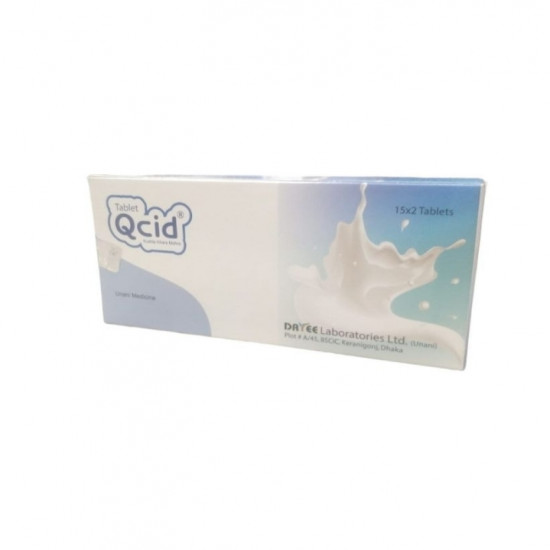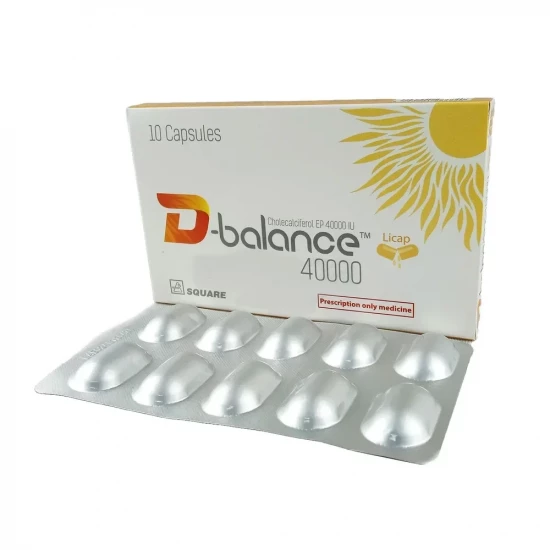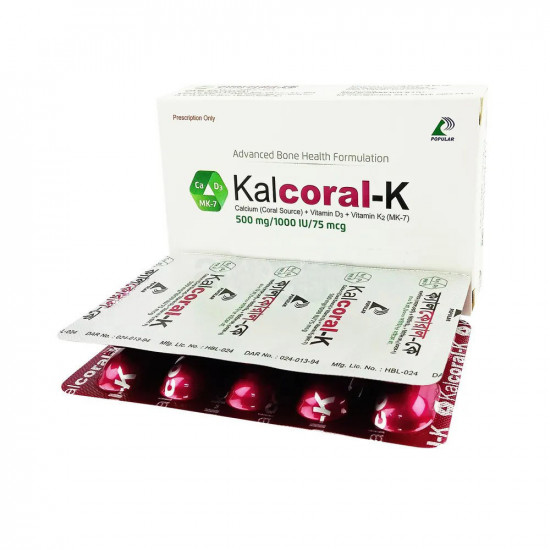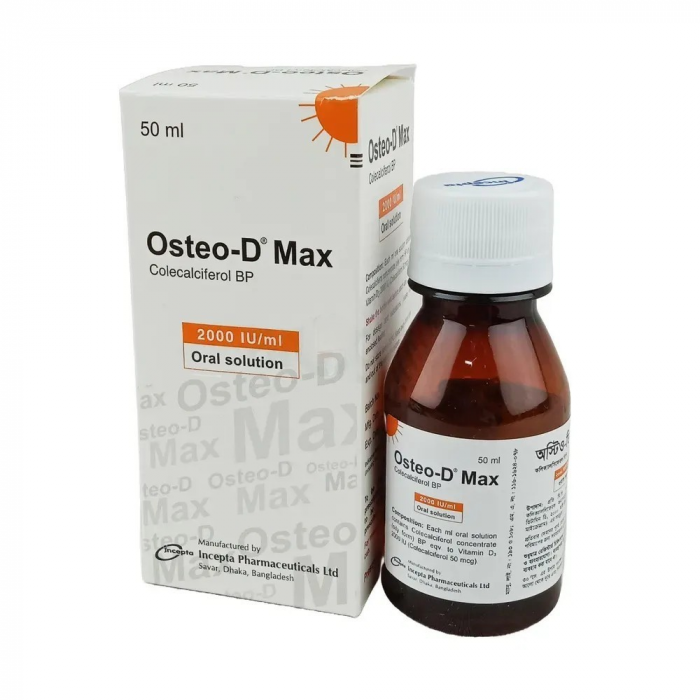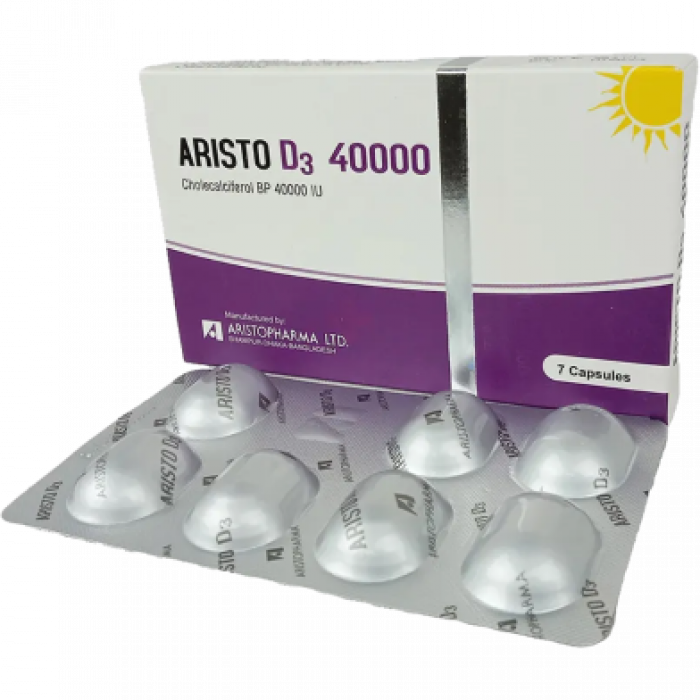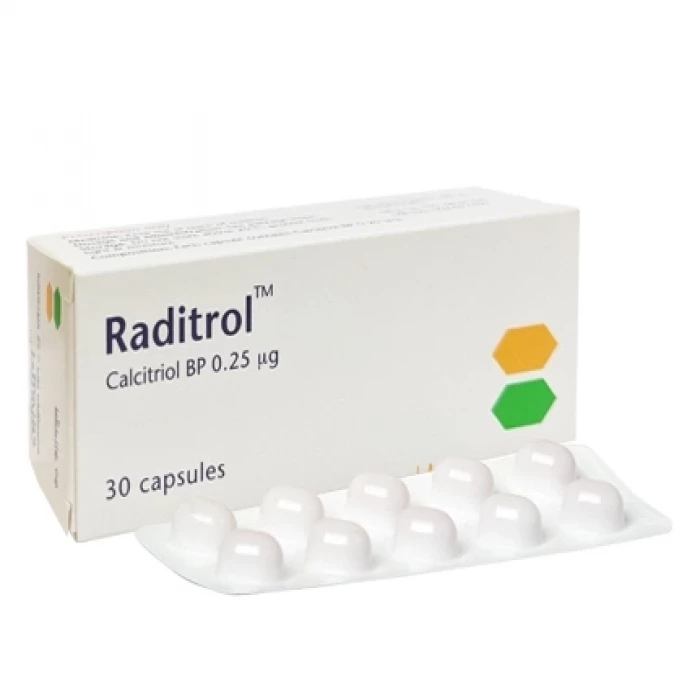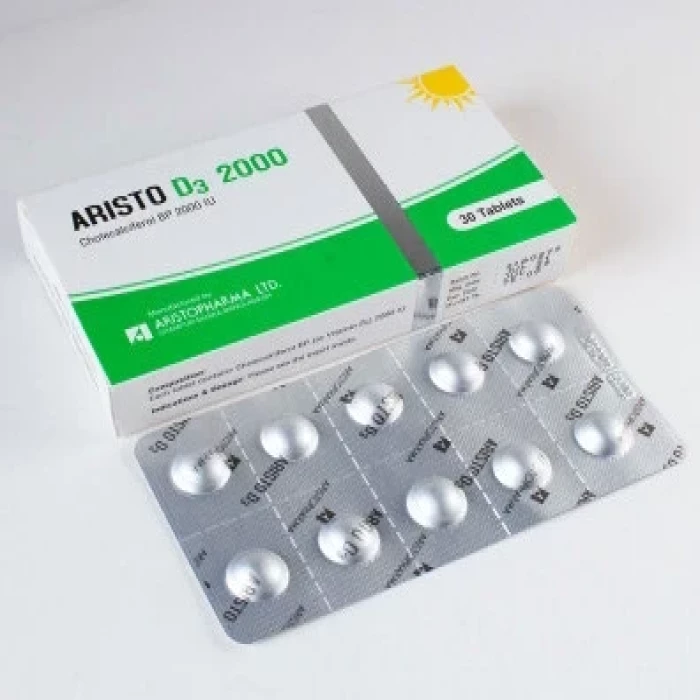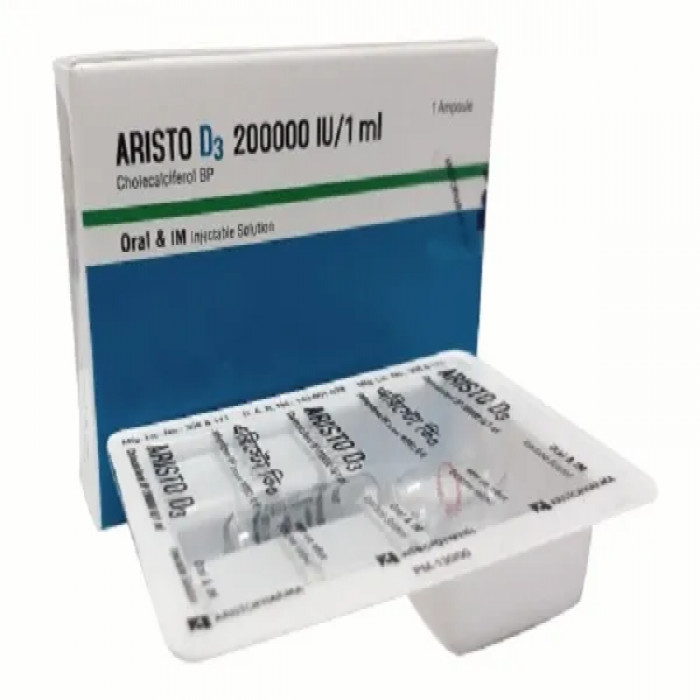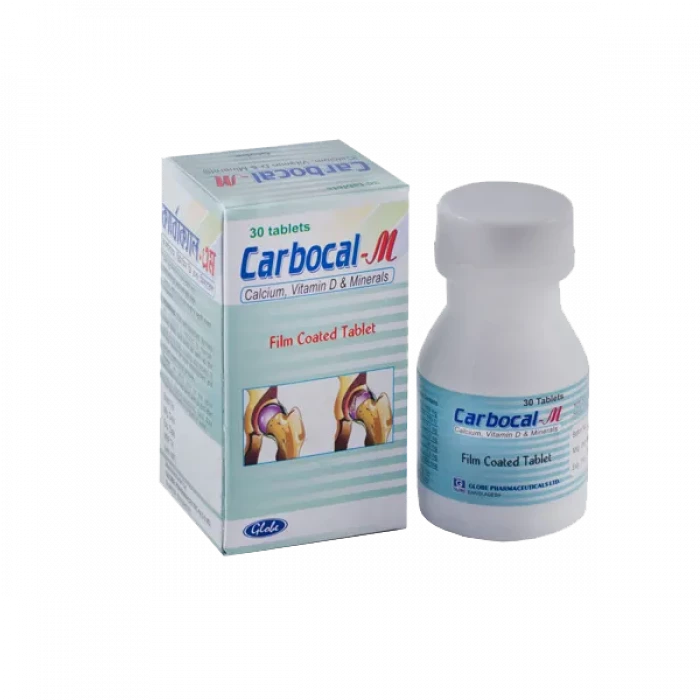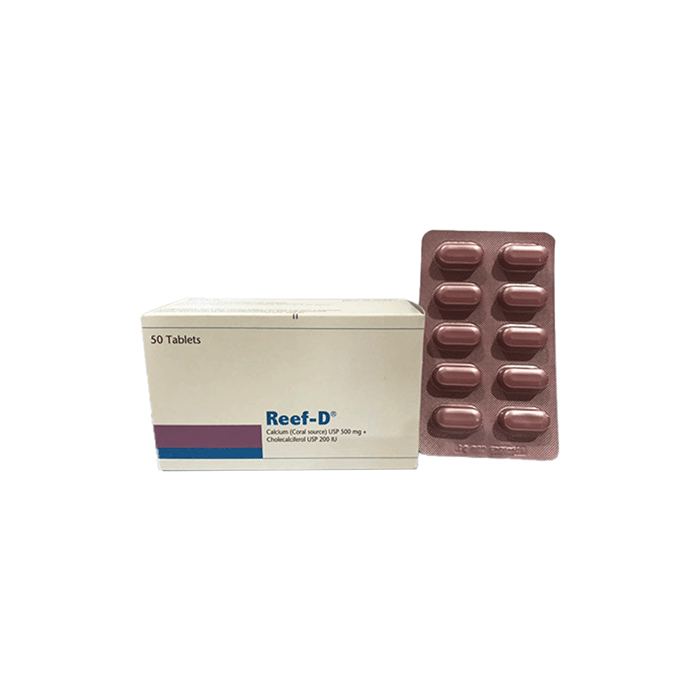
✔ 100% Authentic Product
👁️ Currently Viewing 219
Becoral Kit
This kit (Bisphosphonate Preparations) is indicated for the treatment and prevention of osteoporosis. It helps increase bone mineral density (BMD) and lowers the risk of vertebral fractures.
Discount
Price: ৳ 2,400
MRP:
৳
2500
4%
Off

100% Genuine Products, Guaranteed

Safe & Secure Payments, Always

Fast, Secure & Efficient Delivery

Proper Packaging
 Cash on Delivery - All over Bangladesh
Cash on Delivery - All over Bangladesh Regular Delivery - 12-24 Hours, Dhaka City* Charge Tk.39-59
Regular Delivery - 12-24 Hours, Dhaka City* Charge Tk.39-59 Regular Delivery - 24-48 Hours, Other Cities* Charge Tk.99-110
Regular Delivery - 24-48 Hours, Other Cities* Charge Tk.99-110
 ফ্রি ডেলিভারিঃ - ৯৯৯ টাকা+ অর্ডারে, ঢাকা
শহরে
ফ্রি ডেলিভারিঃ - ৯৯৯ টাকা+ অর্ডারে, ঢাকা
শহরে ফ্রি ডেলিভারিঃ - ২৯৯৯ টাকা+ অর্ডারে, ঢাকার
বাহিরে
ফ্রি ডেলিভারিঃ - ২৯৯৯ টাকা+ অর্ডারে, ঢাকার
বাহিরে
100% Genuine Products, Guaranteed
Safe & Secure Payments, Always
Fast, Secure & Efficient Delivery
Proper Packaging
 Cash on Delivery - All over Bangladesh
Cash on Delivery - All over Bangladesh Regular Delivery - 12-24 Hours, Dhaka City* Charge Tk.39-59
Regular Delivery - 12-24 Hours, Dhaka City* Charge Tk.39-59 Regular Delivery - 24-48 Hours, Other Cities* Charge Tk.99-110
Regular Delivery - 24-48 Hours, Other Cities* Charge Tk.99-110 ফ্রি ডেলিভারিঃ - ৯৯৯ টাকা+ অর্ডারে, ঢাকা
শহরে
ফ্রি ডেলিভারিঃ - ৯৯৯ টাকা+ অর্ডারে, ঢাকা
শহরে ফ্রি ডেলিভারিঃ - ২৯৯৯ টাকা+ অর্ডারে, ঢাকার
বাহিরে
ফ্রি ডেলিভারিঃ - ২৯৯৯ টাকা+ অর্ডারে, ঢাকার
বাহিরে
✅ Description:
Ibandronic Acid + Calcium + Cholecalciferol is indicated for the treatment and prevention of osteoporosis. This combination works synergistically to strengthen bones, improve mineral density, and reduce the risk of fractures.
- Osteoporosis management: Helps restore and maintain bone strength, lowering the risk of fractures in individuals with weakened bones.
- Bone mineral density enhancement: Slows down bone loss and promotes bone formation by inhibiting bone resorption.
- Calcium supplementation: Provides essential calcium needed for bone rebuilding and maintenance of healthy bone structure.
- Vitamin D3 support: Cholecalciferol (Vitamin D3) improves calcium absorption and utilization, ensuring optimal bone mineralization and overall bone health.
Safety Advices

Alcohol
UNSAFE
Limit alcohol intake while taking Ibandronic Acid + Calcium + Cholecalciferol, as it may increase the risk of stomach irritation or other gastrointestinal side effects. Consult your doctor if you experience any stomach discomfort.

Pregnancy
UNSAFE
Becoral is intended for postmenopausal women and should not be used during pregnancy or by women planning to become pregnant, as it may harm the developing fetus.

Breastfeeding
UNSAFE
Ibandronic Acid + Calcium + Cholecalciferol can pass into breast milk and may affect the nursing infant. Avoid using this medication while breastfeeding.

Driving
SAFE IF PRESCRIBED
Becoral does not impair alertness or coordination, so it is generally safe to drive or operate machinery while taking it.

Kidney
CAUTION
Patients with kidney problems, including kidney stones or those undergoing dialysis, should use this medication carefully. Your doctor will monitor phosphorus and calcium levels to prevent unwanted calcium deposits in body tissues.

Liver
CAUTION
Inform your doctor if you have a history of liver disease before starting this medication. Liver impairment may affect the way Vitamin D is metabolized and can influence treatment response.
✔️ Pharmacology
Ibandronic Acid (Ibandronate Sodium Monohydrate) is a nitrogen-containing bisphosphonate that works by inhibiting osteoclast-mediated bone resorption. Its action depends on its strong affinity for hydroxyapatite, a major component of bone’s mineral matrix. Suppressing osteoclast activity it reduces bone resorption and turnover. In postmenopausal women, this results in a gradual increase in bone mass due to a decrease in bone loss.
The combination of Coral Calcium and Colecalciferol (Vitamin D3) provides enhanced calcium absorption. Coral calcium, which contains calcium carbonate along with small amounts of magnesium and trace minerals, is structurally similar to human bone calcium, allowing for better bioavailability. Vitamin D3 facilitates calcium absorption from the gastrointestinal tract and helps maintain calcium balance within the body.
✔️ Dosage & Administration | Becoral Kit
Ibandronic Acid 150 mg: Take one tablet once monthly on the same date each month.
Calcium 500 mg + Vitamin D3 200 IU: Usually, two tablets per day are recommended in divided doses or as directed by your doctor.
Administration guidelines:
Day 1:
Take the Ibandronic Acid tablet on an empty stomach, at least 60 minutes before the first meal, beverage (other than water), or any oral medication/supplement (such as calcium, antacids, or vitamins).
Swallow the tablet whole with a full glass of plain water while standing or sitting upright.
Do not lie down for at least 60 minutes afterward.
Do not chew or suck the tablet.
Days 2–31:
Take one Calcium + Vitamin D tablet in the morning and one in the evening after meals.
Follow the sequence indicated on the blister strip for easier dose tracking.
Use in children: Safety and efficacy have not been established in pediatric patients.
Use only as prescribed by a registered medical practitioner.
✔️ Side Effects | Becoral Kit
Ibandronic Acid:
Commonly reported side effects include hypertension, dyspepsia, nausea, abdominal pain, diarrhea, arthralgia, back pain, myalgia, muscle cramps, headache, dizziness, skin rash, insomnia, and upper respiratory infections.
Calcium + Vitamin D3:
Mild gastrointestinal effects such as flatulence, constipation, diarrhea, and abdominal discomfort may occur. Rarely, long-term use can cause hypercalcemia or hypercalciuria.
✔️ Drug Interaction
Ibandronic Acid:
Absorption may be reduced by products containing calcium, magnesium, aluminum, or iron, including milk, food, and antacids.
Interaction with H₂-blockers (e.g., ranitidine) has been observed in clinical studies.
Calcium + Vitamin D3:
Oral calcium can reduce absorption of tetracycline or fluoride preparations; allow at least 3 hours between doses.
Thiazide diuretics may decrease calcium excretion.
Phenytoin, barbiturates, and glucocorticoids may accelerate vitamin D metabolism.
Foods such as spinach, cereals, and dairy products can reduce calcium absorption.
✔️ Contraindications:
Ibandronic Acid:
Esophageal disorders delaying emptying (e.g., stricture, achalasia)
Inability to sit or stand upright for at least 60 minutes
Hypocalcemia
Known hypersensitivity to ibandronic acid
Calcium + Vitamin D3:
Hypersensitivity to any component
Hypercalcemia, hyperparathyroidism, hypercalciuria, nephrolithiasis, or severe renal insufficiency
Concomitant digoxin therapy (requires careful serum calcium monitoring)
Renal calculi and Zollinger-Ellison syndrome
✔️ Pregnancy & Lactation
Pregnancy: Classified as Category C. Use only if the potential benefits outweigh the possible risks to the mother or fetus.
Lactation: It is unknown whether the components are excreted in breast milk; therefore, use caution when administered to nursing women.
✔️ Precautions & Warnings
Ibandronic Acid:
May irritate the upper gastrointestinal tract; use caution in patients with active GI disorders (e.g., Barrett’s esophagus, gastritis, ulcers).
Correct hypocalcemia and any mineral imbalance before starting therapy.
Musculoskeletal pain (severe or disabling) has been reported.
Osteonecrosis of the jaw may occur, particularly following dental procedures.
Calcium + Vitamin D3:
In mild hypercalciuria, dose reduction is usually sufficient.
Monitor serum calcium in patients with renal impairment or those on long-term therapy.
Encourage adequate fluid intake in individuals with a history of renal stones.
✔️ Storage:
Store below 30 °C, away from light and moisture. Keep out of reach of children.
⚠️Disclaimer:
At ePharma, we’re committed to providing accurate and accessible health information. However, all content is intended for informational purposes only and should not replace medical advice from a qualified physician. Please consult your healthcare provider for personalized guidance. We aim to support, not substitute, the doctor-patient relationship.




